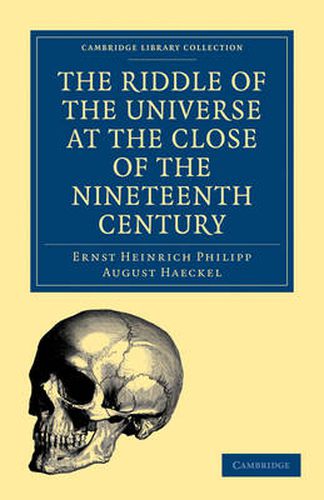Readings Newsletter
Become a Readings Member to make your shopping experience even easier.
Sign in or sign up for free!
You’re not far away from qualifying for FREE standard shipping within Australia
You’ve qualified for FREE standard shipping within Australia
The cart is loading…






Originally trained as a physician, the biologist and thinker Ernst Haeckel (1834-1919), was an evolutionist who remained sceptical of natural selection. This book, which first appeared in German in 1899, sold 10,000 copies in its first few months and was published in an English translation the following year. In the preface, Haeckel applauds the technological progress of the nineteenth century, but bemoans the lack of communication between empirical scientists and abstract philosophers in the search for truth. The book carefully outlines Haeckel’s monistic philosophy and ethics, which he sees as the key to human progress. Its twenty chapters cover anthropology, psychology, cosmology and theology, ranging from the embryology of the soul to a debate on Christianity and science. Haeckel’s philosophy attracted a sizeable following for several decades, and it remains of interest to historians working on the reception of Darwinism as well as on its appropriation into Nazi ideology.
$9.00 standard shipping within Australia
FREE standard shipping within Australia for orders over $100.00
Express & International shipping calculated at checkout
Originally trained as a physician, the biologist and thinker Ernst Haeckel (1834-1919), was an evolutionist who remained sceptical of natural selection. This book, which first appeared in German in 1899, sold 10,000 copies in its first few months and was published in an English translation the following year. In the preface, Haeckel applauds the technological progress of the nineteenth century, but bemoans the lack of communication between empirical scientists and abstract philosophers in the search for truth. The book carefully outlines Haeckel’s monistic philosophy and ethics, which he sees as the key to human progress. Its twenty chapters cover anthropology, psychology, cosmology and theology, ranging from the embryology of the soul to a debate on Christianity and science. Haeckel’s philosophy attracted a sizeable following for several decades, and it remains of interest to historians working on the reception of Darwinism as well as on its appropriation into Nazi ideology.